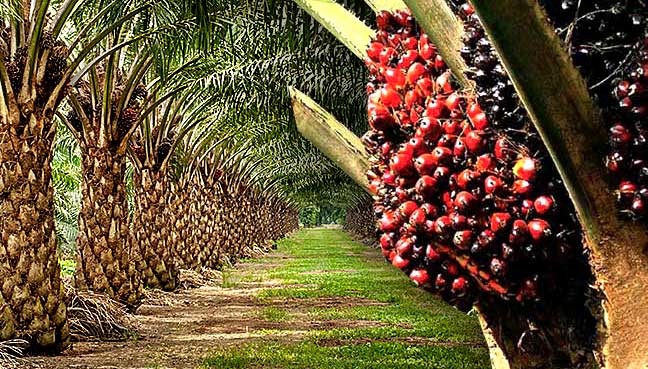The Oil Palm Development Association of Ghana has expressed excitement about the interest of Malaysia and other giant oil palm countries in Ghana’s oil palm sector.
The 44 palm oil actors from across the country have been deliberating on how to take advantage of the situation and to leverage it to make critical gains in the sector.
The deliberations of the association with the support of Solidaridad, an international civil society organisation, is to ensure a vibrant and sustainable oil palm sector and the need to ensure value chain stakeholders have can engage policymakers on sector challenges as well as potential solutions that will create an enabling environment for businesses to thrive.
The training was organised to equip executives of the oil palm value chain association with tools and strategies to influence policy.
Country Representative of Solidaridad, Susan Yemidi, indicated that there was a need to ensure value chain stakeholders can engage policymakers on sector challenges as well as potential solutions that will create an enabling environment for businesses to succeed.
“We are looking at issues of sustainability, issues of climate change, and issues of incomes. We are also looking at policy directions that would enable the sector to thrive.
Since Malaysia has the plan to come into Africa and Malaysia is producing more, they have targeted Ghana and so we need to produce more with less to support the African market,” she said.
The Oil Palm Development Association of Ghana, a private sector industry association is focused on promoting socially responsible, ecologically friendly, and economically sustainable production, value addition, and trading of oil palm.
The oil palm value chain also covers smallholder and out-grower farmers, nucleus estate plantations, millers, refiners, manufacturers of soaps, and other consumer goods.
According to the President of the Association, Samuel Avaala, the association, has over the years been engaging policymakers and the government on critical issues that affect the oil palm sector in Ghana.
He said the association is excited already by the interest of Malaysia in Ghana’s oil palm.
“Ghana is a net importer of palm oil. It means we have room to produce as much as possible so that we can meet market local demand. We are not alone in this deficit in production.
In fact, a report by Reuters in June said that Malaysia exports to Sub-Saharan Africa have been averaging 6 million metric tonnes per annum over the last 10 years.
In 2020, they project that it’s going to hit 9 million metric tonnes. That’s another 3 million metric tonnes more. And that’s where we need to take advantage of. They have seen the opportunities, they have the gap and they are coming,” he averred.
The Oil Palm Development Association of Ghana has also been campaigning for the exemption of imported palm oil and vegetable oils from the government’s 50% reduction in the benchmark values against which duties paid by importers at Ghana’s ports are calculated instituted in April 2019.
The workshop was organized under the second phase of Solidaridad’s Sustainable West Africa Palm Oil Programme (SWAPP II), jointly funded by the Embassy of the Kingdom of the Netherlands in Accra and the Swiss government through its State Secretariat for Economic Affairs (SECO).
So far, over 10,000 oil palm farmers have been trained in best management practices under SWAPP II.
The SWAPP II seeks to improve the oil palm value chain, increase incomes of smallholder farmers and processors, and generate economic growth and jobs in Ghana, Cote D’Ivoire, Liberia, and Sierra Leone.
SWAPP II is part of Solidaridad’s global agenda to build sustainable production for oil palm and other commodities.
Solidaridad has over 50 years of experience in developing solutions to make underprivileged communities more resilient.
It is currently working in over 40 countries, on five continents through eight independently supervised regional offices.
In West Africa, Solidaridad implements sustainability interventions in Cote d'Ivoire, Ghana, Liberia, Nigeria, and Sierra Leone in the cocoa, gold, and oil palm value chains.
Latest Stories
-
How KNUST helped shape Gambia’s first locally trained engineers
14 minutes -
NPP invites presidential hopefuls, directs cessation of meetings with party executives
17 minutes -
NPP Primaries: You can be an old guy, but if you’re incompetent, you won’t win – Asah-Asante
24 minutes -
AUCB Alumni executives pay courtesy call on new Chancellor Frank Adu Jr.
31 minutes -
Rugby Africa Cup returns to Kampala as 8 nations battle for World Cup glory
55 minutes -
Perseus Mining Ghana announces leadership transition
1 hour -
Nuamah’s Olympique Lyon relegated to Ligue 2 over financial troubles
1 hour -
SHS students to debate Copyright Issues at 2025 Ghana Book Fair
2 hours -
Supreme Court vetting report approved despite Minority pushback
2 hours -
Ghana’s development agenda strengthened as NDPC signs MoU with KPMG
2 hours -
Journey to the West: A Struggle through Ghana’s deteriorating roads
2 hours -
AMA clamps vehicles for violating revised street loading hours
2 hours -
Sylvester Tetteh declares interest in NPP General Secretary position
3 hours -
Fifi Kwetey urges full return of Rawlings family to NDC core
3 hours -
Our ‘Thank You Tour’ was turning into a popularity contest – Nana Akomea
3 hours

